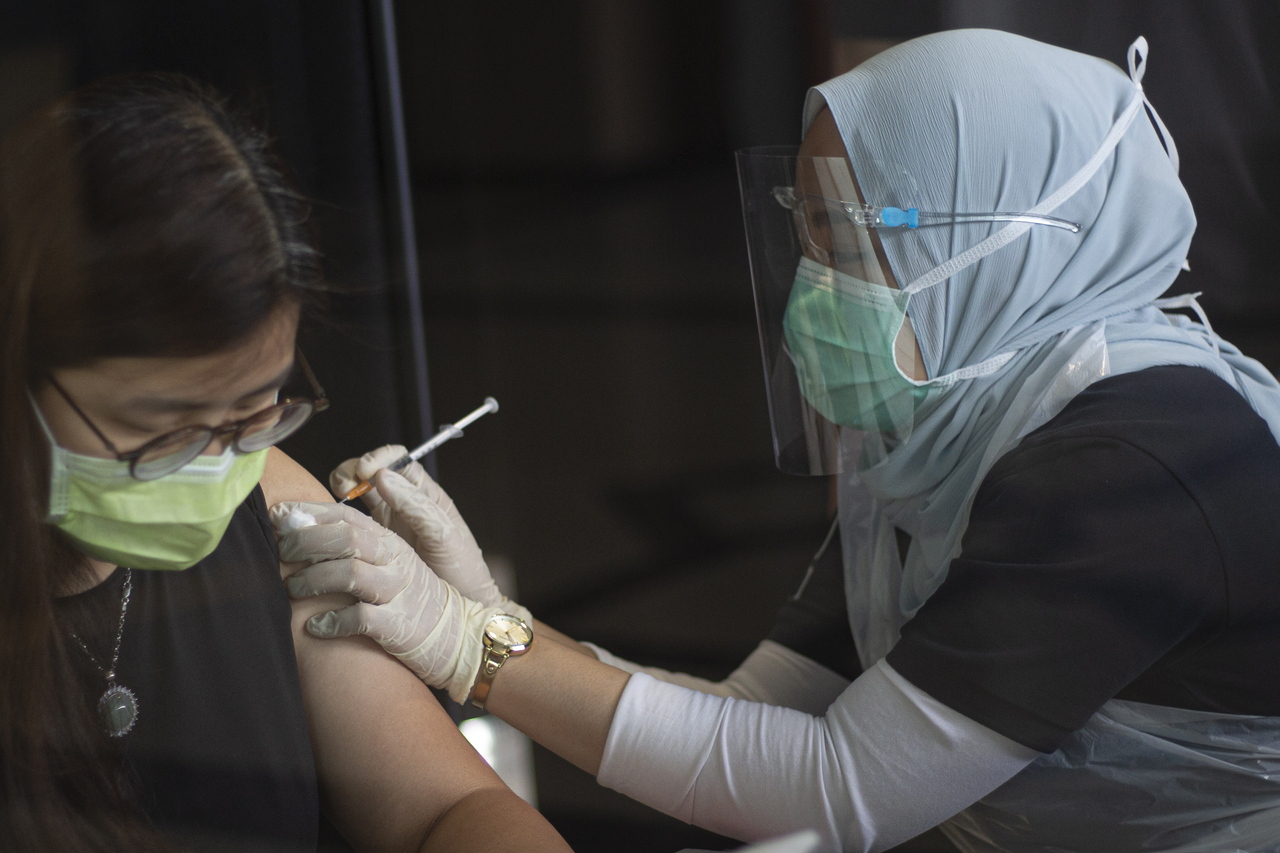Opposition claims lack of equipment at Malaysia's Covid-19 vaccination centres
Sign up now: Get ST's newsletters delivered to your inbox

The opposition said there was insufficient supply of "very basic resources".
PHOTO: EPA-EFE
Follow topic:
KUALA LUMPUR - Malaysia's opposition on Wednesday (July 28) claimed that Covid-19 vaccination centres lacked essential items, as the minister in charge of the immunisation plan Khairy Jamaluddin told Parliament that the country is undertaking one of the fastest vaccination programmes in the world.
The clash over whether the government is stumbling or succeeding in battling the coronavirus occurred on the third day that the Malaysian Parliament has sat this year, with both sides keen to project their viewpoints to a public weary of both the deadly disease and political jockeying.
Malaysia on Wednesday logged another record high of 17,405 daily Covid-19 cases, and 143 fatalities - lower than the record 207 daily deaths notched on Monday and Tuesday.
The opposition said that although millions of ringgit were allocated for the Covid-19 vaccination centres, or PPV, there was insufficient supply of "very basic resources".
Opposition MP Saifuddin Nasution Ismail said some medical staff and volunteers had sought financial assistance to buy these equipment when members of Parliament (MPs) visited the PPVs.
"When we visited the PPVs, the healthcare workers there were asking for contributions from us to get items like photocopying machines, laptops, computers, stationery items," Datuk Seri Saifuddin told Parliament on Wednesday.
"Logistics like computers are not enough. Cooler - an important item - is also not enough. The RM300 million (S$96.4 million) budget is huge. So please facilitate these matters and allow them to focus on the service delivery. Don't complicate them with such trivial issues," he said.
Another opposition MP, Mr Salahuddin Ayub, said he was asked by a Muar district officer to help buy basic items for the Johor PPV.
"The district officer came to see me and asked me to use the state assembly's allocation to buy computers, fans and air-conditioners. If that is the case, where had the huge allocations been channelled to?" he asked.
Both Mr Khairy and Health Minister Adham Baba have not responded to the claims by the opposition.
Under the RM5 billion budget for the National Covid-19 Immunisation Programme (NIP), RM333 million was allocated for rentals and utilities such as halls and generators, while another RM260 million were meant for hardware, consumable supplies and vaccination supplies including computers.
Malaysia is ramping up its Covid-19 inoculation programme and hopes to achieve herd immunity by year-end.
As at Tuesday, 12.49 million people, or 38.2 per cent of Malaysia's population, have received at least one dose of the Covid-19 vaccine. Another 5.91 million, or 18.1 per cent, have been fully inoculated.
Mr Khairy, the coordinating minister for the NIP, told Parliament that over a million vaccine doses were administered over the past two days alone.
"Based on the data from Oxford University's Our World in Data website, Malaysia is now one of the fastest countries in the world when it comes to per-capita vaccinations," he said in his briefing to lawmakers.
Malaysia is also targeting to vaccinate foreign workers and undocumented migrants, a move supported by Barisan Nasional's lawmaker Bung Moktar Radin.
Datuk Seri Bung said the move would help in Malaysia reopening its economy.
Using Singapore as an example, he also urged the government to quickly procure as many vaccine doses as possible.
"Singapore has four million residents and they already ordered 20 million doses; why can't we do that?" he said.
Mr Khairy told Parliament that Singapore possibly got ahead of Malaysia in procuring Covid-19 vaccines because Temasek Holdings and other investors had invested US$250 million (S$340 million) in German biotech company BioNTech.
The Science, Technology and Innovation Minister said it was likely that Singapore was prioritised by BioNTech, which developed the Pfizer-BioNTech Covid-19 vaccine in a joint venture with Pfizer, because Temasek Holdings has a stake in the company.

